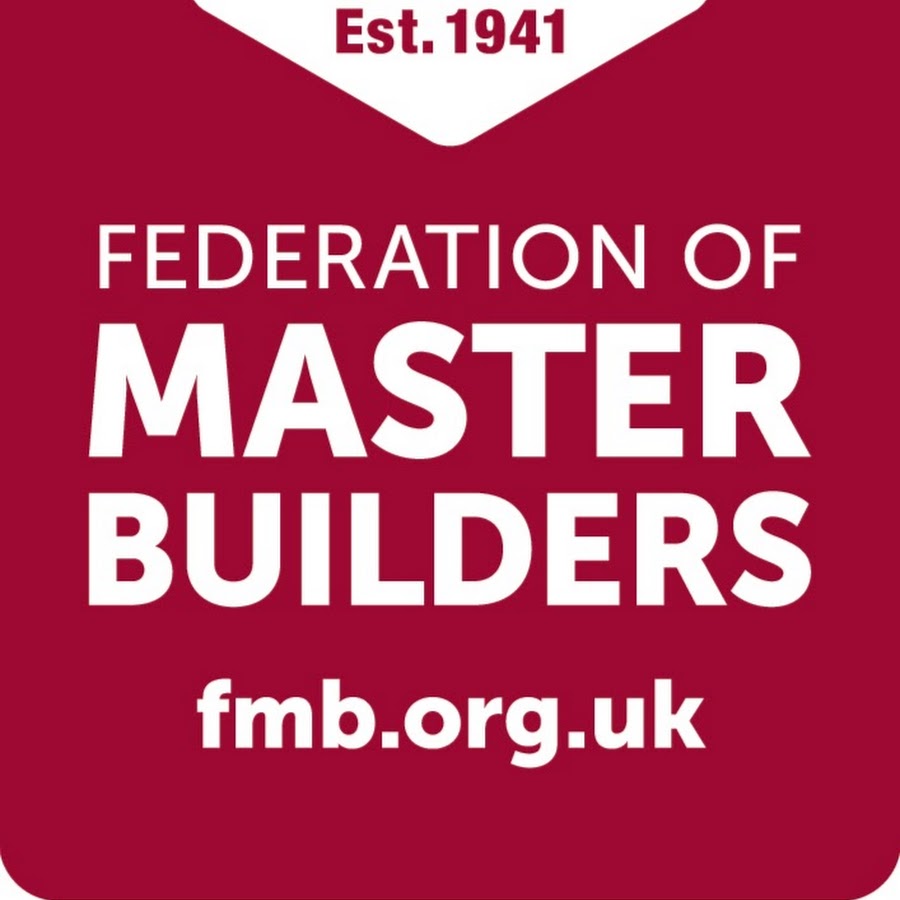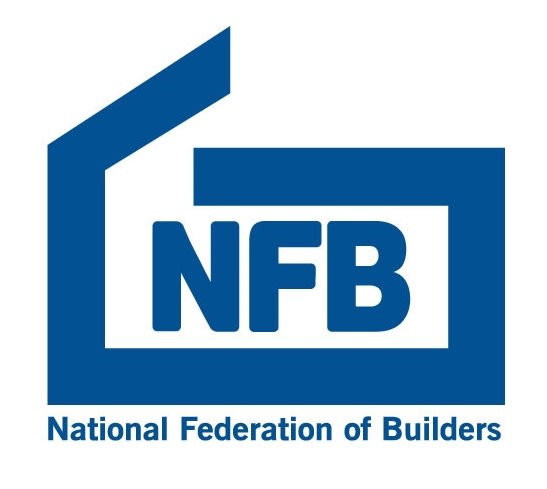Innovative, inspirational and progressive, UK Construction Week (UKCW) Birmingham returns for its ninth year this autumn, with a ‘call to action’ for the sector to set its own agenda rather than wait for the government to respond.
CE Midlands will have a stand at UKCW in Birmingham so do visit us there.
The UK’s largest event for the built environment, registration is now live for UKCW Birmingham, which will run from October 3rd to 5th; it will run alongside two co-located shows, Grand Designs Live and Timber Expo, which celebrates its 10th anniversary in 2023.
Nathan Garnett, UKCW show director, commented: “Construction is often criticised for being too disparate, lacking collaboration, not addressing its skills crisis, reverts to protecting the bottom line, is scared of innovation and too often ignores safety and environment.
“UKCW, as the UKs largest event bringing all parts of the industry together, is the place to learn from those shaping this rapidly changing industry. We’ll tackle key issues head on – including mental health, fire safety and the skills gap – if you work in any part of the industry, you cannot afford to not be at UKCW Birmingham.
“We had a hugely successful UKCW London in May, but in such a fast-paced industry, the Birmingham show will give visitors invaluable insight into the latest trends, legislation, innovation and tech, with many new exhibitors and demonstrations.
The three-day construction show, welcoming over 25,000 visitors, will hero culture change in construction and will feature over 6,000 products and services. Over 150 CPD hours during sessions led by 400 thought leaders and keynote speakers including West Midlands Mayor, Andy Street will also be attainable at UKCW Birmingham.
Visitors will also be able to explore sections dedicated to Build, Infrastructure, Roadmap to Net Zero, Digital Construction and Offsite. The construction show, which has already allocated more than 80% of its available slots to the likes of 300 exhibitors including Biffa, Topcon, Containex, SDS, Hanson Plywood, Expedeon, Celsa Steel UK and HP Construction Services, is on track to be the most successful one yet.
Officially opened by architect and Channel 4 presenter George Clarke and championed by partners and sponsors such as HP, Northgate, Find It In Birmingham, CIOB, BMF and NFB, the show will feature sessions and seminars led by industry experts across six stages:
● UKCW Main Stage – used to take on construction industry topics, with a mixture of keynotes,
panel debates and case studies from industry leaders.
● Sustainability Hub – the heart of Timber Expo. The hub programme will tackle the issues,
layout strategies and case studies to help the sector reach its net zero targets.
● Infrastructure Hub – From digitalisation to improving quality and sustainability, this hub will deliver a three-day programme for those working on infrastructure projects of case studies,
debates, networking opportunities, and keynote speeches on crucial issues.
● Digital Construction Hub – the centre piece of innovation at UKCW. This hub will deliver a series of presentations and panel discussions including topics such as Information Management using BIM.
● CPD Hub – a mix of industry relevant CPDs delivered by industry experts, association
partners, government departments and exhibitors.
● Culture Change Hub – a focus on improving inclusivity within the built environment,
wellbeing and mental health and professional development.
Other key features include:
● Future Lab – featuring ground-breaking and innovative products including the Exoskeleton
from exhibitor German Bionic; a wearable device that can make users feel less tired and
reduce the risk of strain injuries.
● Robotics Theatre sponsored by HP, will showcase all types of construction robotic innovation
● COBOD 3D concrete printer will be live printing a house
● UKCW Role Model Awards – celebrating the unsung heroes of construction, the award ceremony will be taking place on the main stage on 5th October.
● Timber Expo – celebrating 10 years at UKCW this year, the UK’s largest display event for wood
and timber presents the future of the sector – from sawmills, timber cladding and mouldings
to doors, windows and flooring products.
● Seminar programme – details of the comprehensive seminar programme and CPD opportunities will be revealed in July, covering latest building regulations, the Building Safety Act and its implications, and advice on retrofit.
Distinguished leaders and innovators from across the construction industry have been announced for this year’s Constructing Excellence Midlands Construction Summit.
Bringing together professionals to discuss prominent issues affecting construction in the Midlands, the event will feature a series of keynote speakers with a wealth of knowledge on the issues impacting supply chains regionally and nationally, notably including talks from Nusrat Ghani MP, construction minister, and Dame Judith Hackitt, chair of Make UK.
The annual summit, organised by industry collaboration organisation Constructing Excellence Midlands, will take place on 18 October at the prestigious Highbury Hall in Birmingham. The event focuses on the four core themes that CE Midlands aims to encourage discourse, knowledge sharing and promote industry collaboration: building safety, climate crisis, future skills and smart construction.
Andrew Carpenter, chief executive of Constructing Excellence Midlands, said: “Our annual summit provides a unique pan-industry opportunity for construction professionals to collectively discuss what issues and emerging trends they are witnessing, as well as to better understand the responsibility that we each have to evolve in our search for best practice.”
Dame Judith Hackitt will be presenting a keynote address on building safety following her illustrious experience in the industry, which included a role as chair of the Independent Review of Building Regulations and Fire Safety. She is most notably known for producing the Hackitt Report – an independent review of building regulations and their impact on fire safety in the wake of the Grenfell tower tragedy, which identified the current system to not be fit for purpose and the industry needing a culture change.
Dame Judith said: “Six years on from the terrible tragedy of Grenfell Tower the drive for excellence in the built environment remains front and centre. Providing homes and other spaces for people to live in, work in and experience must, first and foremost, be safe.
“We must make this the bedrock of the industry culture at the same time as we face all of the other challenges, including economic uncertainty, adaptation to climate change and innovation.”
Climate crisis will also take centre stage at the event, with a panel of speakers giving their insight on sustainable construction practices and innovative solutions for a greener future. Discussions will then turn to smart construction to showcase how digitalization, automation, and data-driven approaches are revolutionizing how organisations design, build, and manage projects.
Andrew Carpenter added: “Alongside Judith and Nusrat we have an incredible lineup of speakers providing their insight on the core themes that CE Midlands promotes best practice
and collaboration for. We look forward to welcoming construction professionals from across the Midlands construction industry to a thought-provoking day.”
For more information and to register to attend the CE Midlands Summit click here. The full agenda for the event is as follows:
· 8.30am – Registration & Networking
· 9.30am – Welcome: Uma Shanker, Chair CE Midlands
· 9.40am – Keynote Address: Nusrat Ghani MP, Minister of State at the Department for Business & Trade
· 10.00am – Building Safety:
– Keynote Address: Dame Judith Hackitt
– An insurance perspective: Gallagher (speaker to be announced)
– Panel session with Dame Judith Hackitt and Gallagher speaker
· 11.00am – Tea/Coffee & Networking
· 11.30am – Climate Crisis:
– Disruptive Sustainability: Georgia Elliott-Smith, Element 4
– Re-purposing buildings: Stuart Smith, Morgan Sindall
– Timber in Construction: David Hopkins, Timber Development UK TBC
– Future Homes Standard: David Adams, Future Homes Hub
– Panel session with Georgia Elliott-Smith, Stuart Smith, David Hopkins and David Adams
· 1.15pm – Lunch & Networking
· 2.15pm – Future Skills:
– Future needs: Wendy Osborn, engagement director for England, Construction Industry Training Board (CITB)
– A Midlands perspective: Marina Robertson, managing director at Acivico TBC
– Panel: Wendy Osborn & Marina Robertson
· 3.05pm – Smart Construction:
– Business benefits of offsite construction: Gaynor Tennent, Offsite Alliance
– An update from Manufacturing Technology Centre (MTC): speaker to be announced.
– Panel: Gaynor Tennant & MTC speaker
· 3.55pm – 4.00pm – Final Thoughts: Uma Shanker
Constructing Excellence Midlands is offering space on the day to exhibit at £250 + VAT. Interested parties can contact tom.carpenter@cemidlands.org.
We are going through a brief period of disruption caused by the pandemic and the war in Ukraine before experiencing a grateful return to a world of reliable predictability. Really?
This month, Martyn Jones argues that thinking this would be folly given that we now face two major disrupters of the status quo. A double whammy made up of a shift to a new techno-economic wave coupled with the challenge of addressing climate change – the ‘knobs on’ bit of this article. But more on that later.
First then, the new wave. Since the beginning of the Industrial Revolution, we have ridden five distinct technological-economic paradigms or waves – clusters of innovations that have all uniquely and radically shaped our world and lives.
The waves that have reshaped how we live and work to date have been ‘Early Mechanisation’, ‘Steam Power and Railways’, ‘Electrical and Heavy Engineering’, ‘Fordist Mass Production’, and the most recent, ‘Information and Communication’.
We are now beginning to see the upward swing of the sixth wave as anticipated by the proponents of long waves of technological innovation (including, incidentally, Constructing Excellence in the South West).
The nature of the sixth wave is now rapidly taking shape and includes Quantum Computing and the power – for good and ill – of Artificial Intelligence (AI). And our markets are changing too with rapidly growing sectors of the economy such as renewable energy and life sciences.
Two former party leaders, Sir Tony Blair and Lord Hague predict that “Society is about to be radically reshaped, requiring a more strategic state, and a fundamental change in how we plan for the future.” They argue that a “complete realignment” is needed in order to respond to the “radically reshaped” society that the technologies, including AI, are expected to create. In other words, we need to make the transition to a new dominant paradigm.
In their report, ‘A New National Purpose: AI Promises a World-Leading Future of Britain’, they suggest the UK must create new institutions in order to guide this change safely and for our
advantage. “By investing in talent, public data and promoting research,” they argue, “the UK can become a leader in the deployment of these technologies into the real world for the public good.”
But what does this mean for the built environment and construction? And what role will Constructing Excellence play in helping to find our best way forward with the necessary speed, decisiveness, and sense of priority?
We need to understand the role construction will play in the new wave. As in previous paradigms, we will be a significant player as an ‘enabling’ or ‘carrier’ industry, providing the infrastructure to support the new technologies. But we will also need to shape and assimilate the technologies and new ways of workinginto our products and processes to satisfy changing client needs both in existing and emerging sectors of the economy.
And as we shift to the new wave there is much we can learn from how we responded, from the 1990s onwards, to the current ICT wave. Looking for and building on the positives and things we did well but also learning from the mistakes we made and the opportunities that were lost.
During the past 30 years we have managed to assimilate to some extent an increasing number of technologies including CAD, BIM, GIS, smart building technologies, modular construction and Design for Manufacturing and Assembly (DfMA), digital twins and, most recently, our early flirtation with robotics and AI.
Alongside these we have made some progress in changing the way we organise ourselves with some re-evaluation of our forms of cooperation and competition. (Although some would say not nearly enough). We now work in networks of firms increasingly connected by ICTs with some degree of cooperation – collaboration even – in product and process technologies, quality, and production planning.
And we have alternatives to the traditional approach to project delivery aimed at breaking down the traditional barriers between project participants, and between the design, construction, operation, and reuse and recycling stages of the lifecycle. We can offer our clients new, more collaborative models of construction procurement too, such as Negotiation, Target Costing, Two Stage Open Book, and some have even toyed with Integrated Project Insurance.
But what about the ‘knobs on’ raised at the beginning of this article? The last four of the five waves have been fuelled by burning fossils. This is no longer possible given the pressing need to address the growing crisis of climate change, the effects of which are likely to be irreversible by 2030. Greenhouse gas levels are at an all-time high, more than 1 million species are facing extinction, and the earth’s resources are being used faster than they can be renewed. Change is inevitable.
Disruption on this scale means that the built environment, construction’s operating system, our markets, and the wider environment will never be the same again. But, how should we respond?
As in the past, learning and leadership will be key components of our response. And in looking back to how we transitioned to the ICT paradigm, we see the key role played by Rethinking Construction and Constructing Excellence in providing learning and leadership to help us make the most of the opportunities and confront the challenges.
We will continue to play a major role, as we did in the last wave, capturing and sharing best practice and offering guidance and support, emulating, for example, the Bristol Best Practice Club’s Specific Innovation Clusters (SICS) and Here to Learn (HtL) workshops.
We can bring together practitioners to fashion a systematic approach to developing, implementing, monitoring, and sustaining the innovations of the sixth wave whilst always recognising the specificities of construction. Supporting clients and construction leaders to work collaboratively, to act decisively and at pace, with agility and daring.
















